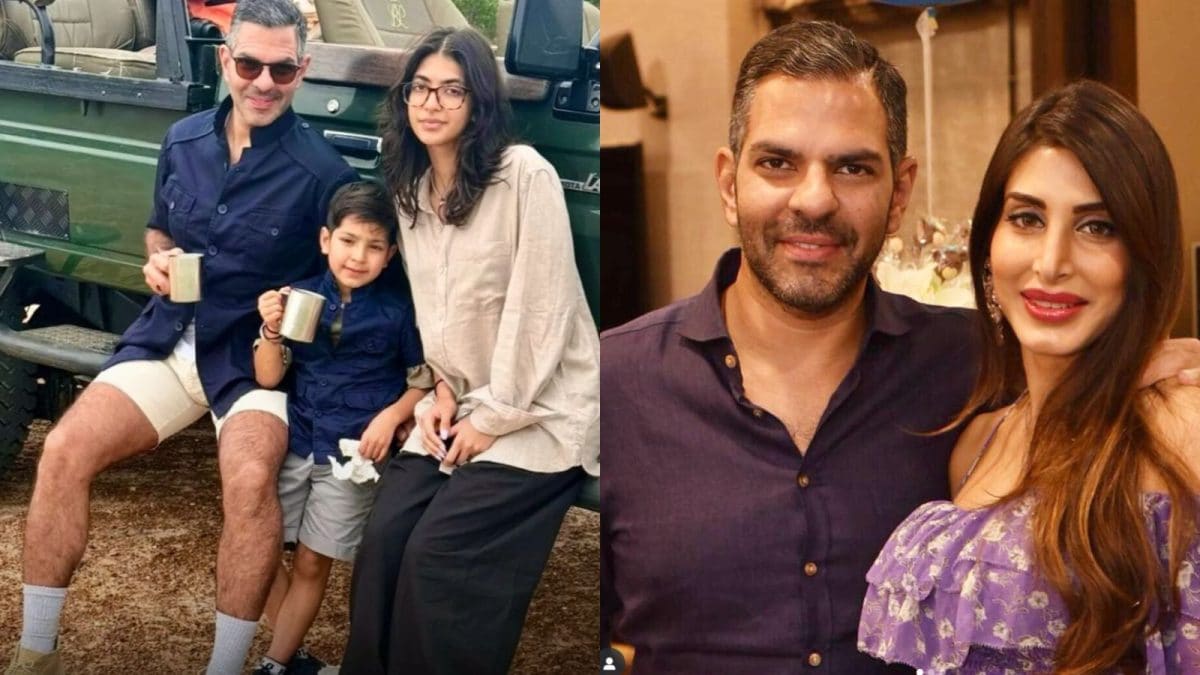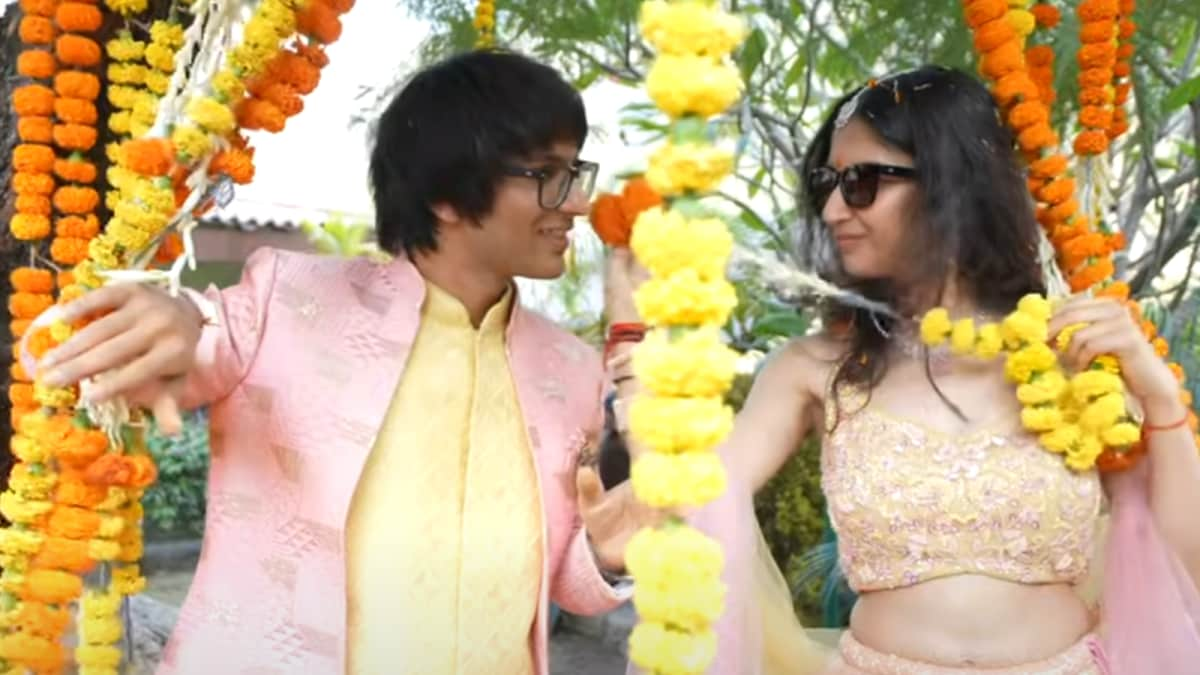Last Updated:
In times when relationships are fleeting and communication is filtered through irony, a show like ‘Nobody Wants This’ feels almost radical without mocking the modern dating culture

When Noah chases Joanne, it isn’t about winning her back; it’s about showing up, something increasingly rare in the era of convenient exits (Image: Netflix)
The final moments of the first season ended with Joanne in tears, after having broken up with Noah, convinced that she will never become the woman he needs not when she isn’t ready to convert to Judaism and he is preparing to become the Head Rabbi. It is a moment filled with the kind of stillness that only heartbreak can create. Yet before she can fully walk away, Noah runs after her. “I put you first,” he says, breathless. “Everything else will work itself out, but I’m saying that you are my priority.”
It is the kind of line that, in the world of casual dating and temporary connections, should feel almost out of place. But it doesn’t, it lands with quiet power, not because it is grand or dramatic, but because it is sincere. The closing scene of Netflix special show, ‘Nobody Wants This’ became one of those rare television moments that lingered beyond the credits, shared and reshared across feeds with captions like ‘This is love without conditions’, ‘We’ve forgotten how to say this’ or ‘To be loved like this’.
For a generation fluent in the grammar of detachment where phrases like “soft launch,” “benching,” “breadcrumbing,” and “situationship” have replaced conversations about love, the series feels like a mirror and a balm. It doesn’t mock modern relationships; it understands their language, even as it gently calls out the emotional fatigue and lack of effort beneath them.
Why “Nobody Wants This” Works When Everyone Pretends Not to Care
What makes ‘Nobody Wants This’ so quietly radical is its refusal to apologise for yearning. It doesn’t try to be ironic, self-aware, or clever about love, it allows love to be awkward, complicated, and necessary.
The show’s central relationship unfolds with a vulnerability that feels almost old-fashioned. There are pauses, silences, the fumbling honesty with constant reassurance and acceptance that rarely survives the algorithmic pace of dating today. For viewers used to the stop-start rhythm of modern courtship, watching Joanne and Noah navigate faith, family, and fear feels oddly soothing. They fight, misunderstand each other, but they also show up for each other, communicate the good, bad and ugly- an act that, in the age of disappearing messages, has become revolutionary.
Part of the reason the show resonates is because it doesn’t glamorise love. It treats it as a process, not a performance. The chemistry between Joanne and Noah doesn’t come from perfect compatibility but from the uncomfortable truth that love often coexists with uncertainty. And that, perhaps, is what today’s audiences relate to most: the idea that not knowing doesn’t mean not caring or the healthy relationships are all sunshine and rainbows.
The writing captures what so many people in their twenties and thirties are quietly realising — that the language of casual dating can sometimes disguise a deep hunger for connection. It’s easy to say you want something “low pressure” until you meet someone who makes you question why you settled for less in the first place.
How Are Situationships Teaching the Disappearing Language of Commitment?
To understand why ‘Nobody Wants This’ has struck such a chord, it helps to look at what dating has become for the younger generation. The modern landscape is littered with phrases that sound almost like disclaimers. Here’s a short guide for you.
A situationship, something more than a fling but less than a relationship — offers intimacy without labels. Benching means keeping someone on emotional standby while exploring other options. Ghosting is an exit strategy disguised as silence. Breadcrumbing is the art of staying just available enough to keep someone interested, without any real intention of being with them.
These words, though playful, reflect a growing discomfort with vulnerability. For many Gen Z and some millennial daters, ambiguity feels safer than commitment. The paradox is that in trying to avoid being hurt, people have built an entire culture around emotional half-measures.
Sociologists often link this to the way technology has reshaped intimacy. Dating apps turn people into profiles- swipes, filters, and prompts designed to capture chemistry in seconds. The abundance of choice makes connection feel disposable. Why work through conflict when the next potential match is a tap away?
What this really means is that relationships have become performative acts of control. By naming everything, a situationship, a talking stage, a soft launch people protect themselves from the messy uncertainty of falling for someone. But the cost of that protection is loneliness.
This is where ‘Nobody Wants This’ finds its power. It recognises that even in a world where everyone claims not to care, most people still want to be seen, chosen, and understood. It shows that intimacy cannot be edited down to a label.
Why Is ‘Nobody Wants This’ A Chicken Soup for the Cynical Soul?
If you’ve read the many versions of the 1990s series of books filled with uplifting, real-life stories of love, loss, and redemption. The comparison isn’t accidental, especially for those who grew up rolling their eyes at sentimentality, ‘Nobody Wants This’ feels like an updated version of that comfort, a quiet emotional corner for people who still believe in connection, even if they no longer know how to ask for it.
In the same way those books offered reassurance that kindness and love still existed, this show reminded viewers that tenderness, acknowledgement, acceptance and appreciation is not outdated. It just looks different now. The comforting element lies not in the outcome, the show doesn’t promise a fairy-tale ending but in the recognition that vulnerability still matters.
What makes it “chicken soup” for the soul isn’t nostalgia but honesty. The show simply suggests that acknowledging our fears and flaws might be the first step toward intimacy. When Noah tells Joanne, “I put you first,” it isn’t about sacrifice; it’s about clarity, the kind of clarity that has become rare in modern love stories.
The show becomes comforting precisely because it treats modern love’s chaos with compassion. It says, in effect: yes, it’s hard; yes, we are all afraid; and yes, it’s still worth trying.
‘Nobody Wants This’ Introduces A New Language of Love
Every generation rewrites the rules of romance. Gen Z has introduced a vocabulary that reflects both their creativity and their caution. They orbit exes (staying visible online without contact), dry text through emotional moments, and soft launch relationships through vague Instagram stories.
Behind the irony lies exhaustion. Many young adults are caught between the pressure to seem detached and the human need to belong. Publicly, it’s easier to joke about “red flags” and “icks” than to admit that rejection still hurts. Privately, people are more introspective — they listen to breakup podcasts, analyse attachment styles, and read essays about emotional unavailability.
This split between performative detachment and private longing is precisely what ‘Nobody Wants This’ articulates so clearly. Joanne and Noah are not symbols of ideal love; they are two people learning how to communicate in a world that rewards avoidance. Their struggles with faith and identity mirror the real-life questions so many face- how much of yourself can you compromise for love? And how much are you willing to fight for something real?
A Mirror to the Modern Heart
‘Nobody Wants This’ refuses to turn emotional honesty into spectacle. It doesn’t dramatise heartbreak for shock value, it lingers on moments of quiet recognition, a hesitation, a small act of courage, a confession that lands late but still lands.
In doing so, it becomes a mirror for those who have grown tired of pretending that detachment is strength. The show validates the desire for commitment without making it sound outdated. It reintroduces the idea that vulnerability isn’t a weakness to be trashed, but the foundation of any meaningful connection.
When Noah chases Joanne, it isn’t about winning her back; it’s about showing up, something increasingly rare in the era of convenient exits. That gesture becomes the emotional hinge of the series, reminding viewers that love still requires effort, even if it doesn’t guarantee permanence.
October 24, 2025, 11:29 IST
Stay Ahead, Read Faster
Scan the QR code to download the News18 app and enjoy a seamless news experience anytime, anywhere.








